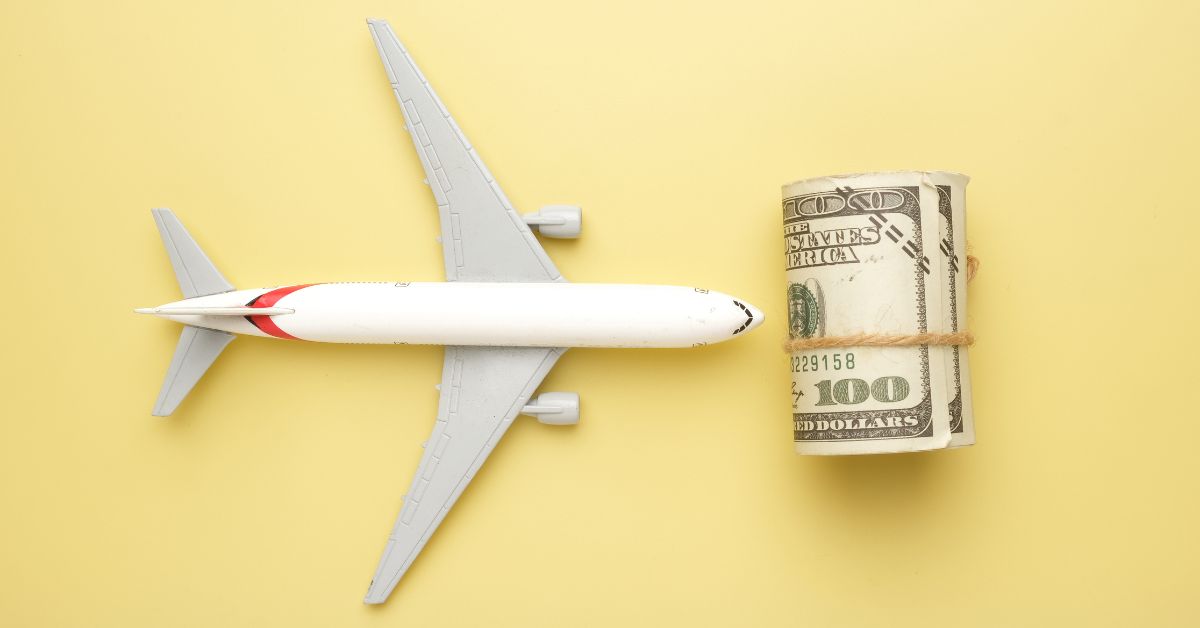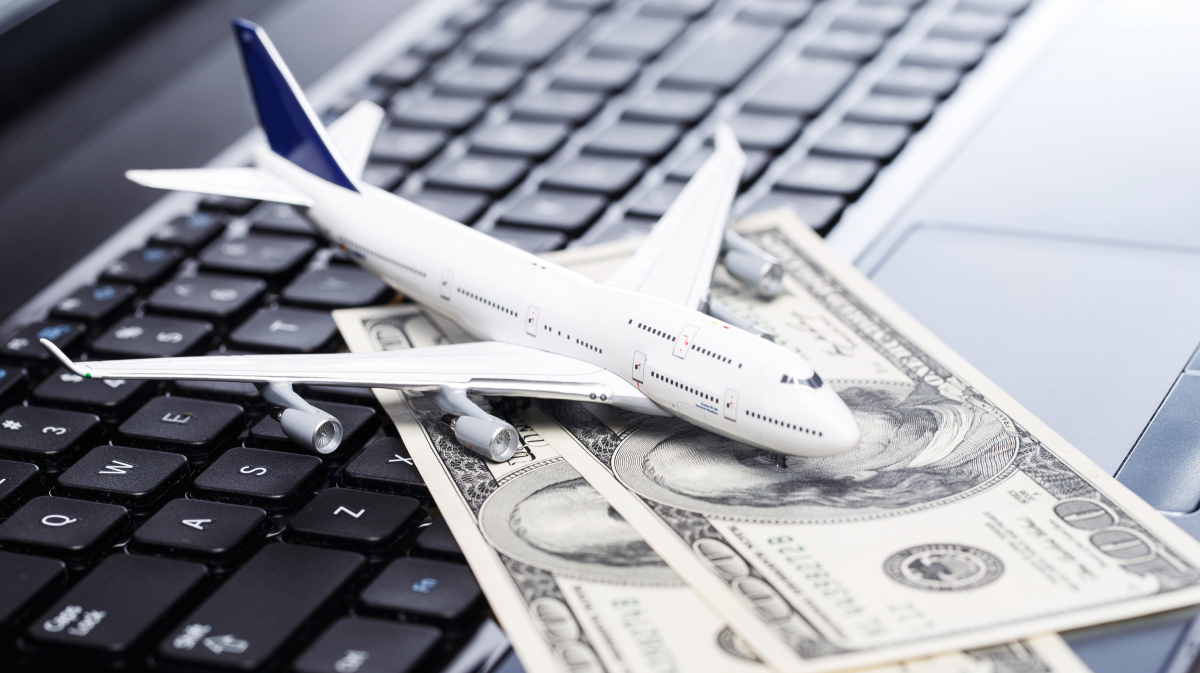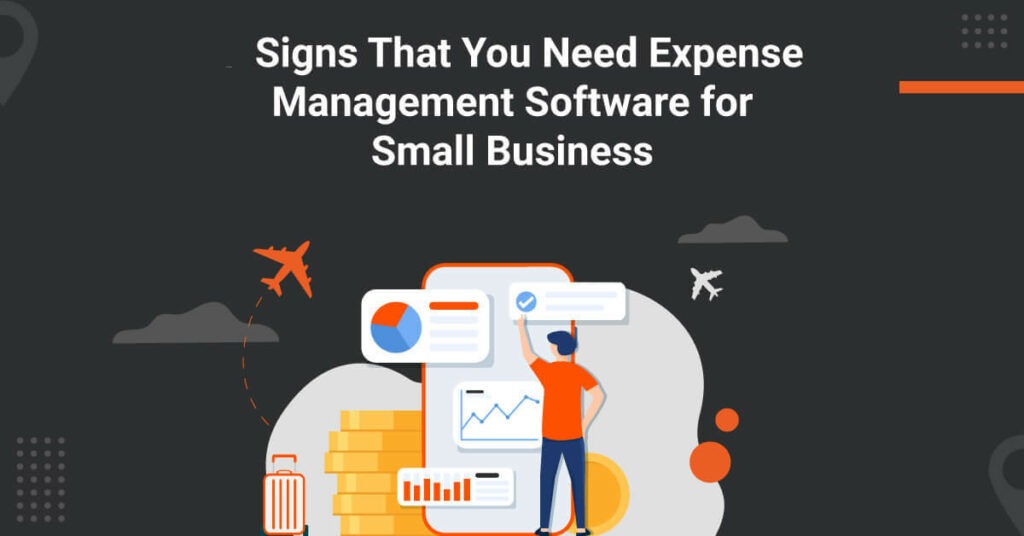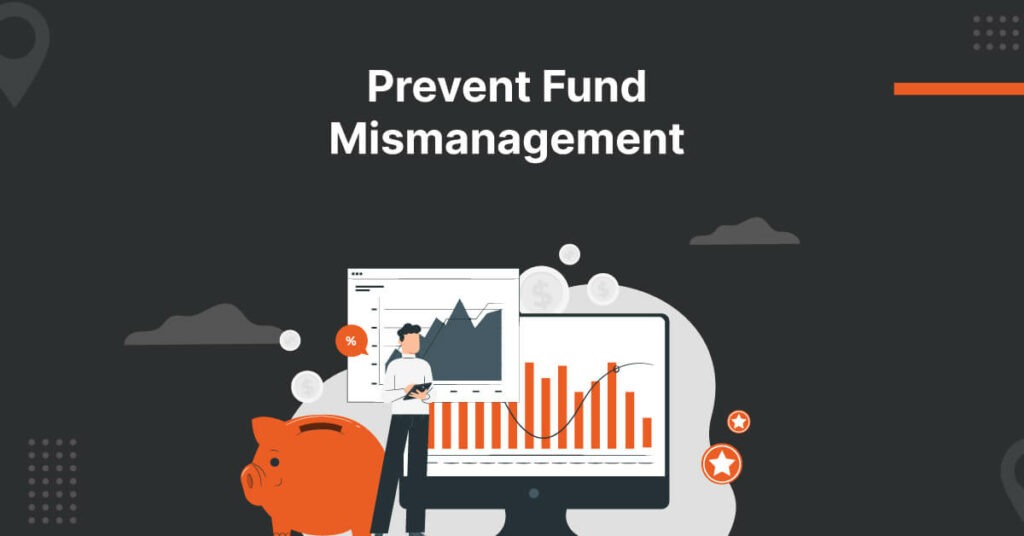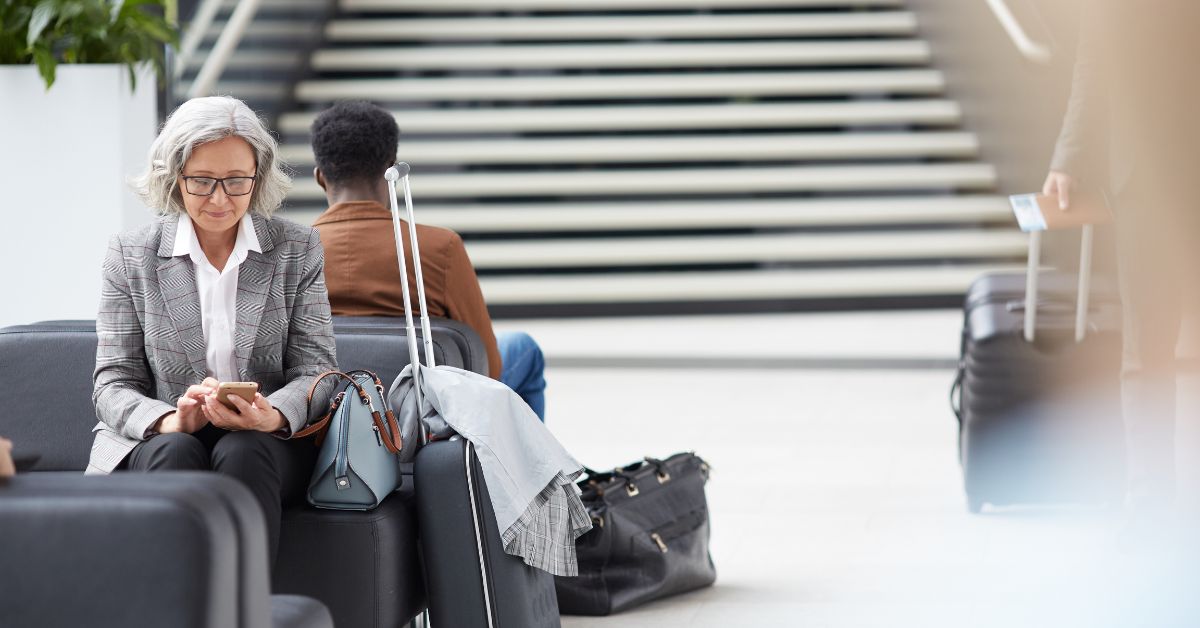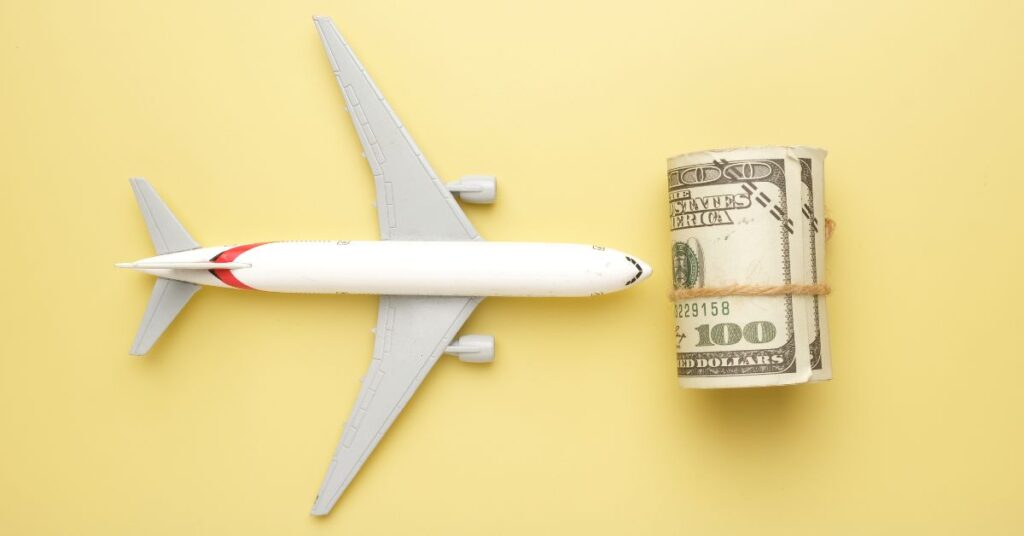
How much does it cost to take a business trip? Recent studies have suggested that the average cost of a business trip in the United States is a staggering $1,293. But is this figure accurate? How does it break down? And what factors contribute to the significant expenses associated with business travel?
In the fast-paced business world, travel enables companies to expand their reach, maintain client relationships, and hold important meetings.
In this blog, we will explore the average cost of business travel in detail. We will illuminate the various expenses involved and offer strategies for businesses to optimize their travel costs.
What Contributes to the Average Cost of Business Travel?
The average cost of business travel involves several components that accumulate for a trip. While some expenses are fixed, others can fluctuate based on factors. These include the destination, the nature of the business, and the time of year.
Let’s break down these major elements:
1. Flights: The Major Expense
The largest portion of the average business travel costs typically comes from airfare. Depending on the distance, class of travel, and booking timing, flights can represent anywhere from 17% to 27% of the total business trip cost.
Airline Choices and Ticket Prices
While business class tickets are typically more expensive, even economy class flights can add up quickly. According to a report, the average cost of a domestic flight in the U.S. for business travelers was between $273.31 to $472.97. The price can vary depending on whether it is booked in advance or closer to the departure date. This is because last-minute tickets tend to be significantly more expensive.
Flight Duration and Flexibility
Long-haul flights or international trips increase the overall average cost of business travel. This is especially true if there are multiple stopovers or layovers. Additionally, flexibility in flight dates and times often means higher prices, as flexible tickets come with a premium.
2. Accommodation: Hotel Costs Add Up
For most business trips, staying overnight in a hotel or booking a short-term rental property is necessary. Hotels represent another significant part of the average cost of business travel.
Hotel Type and Location
The average business trip cost is significantly affected by the choice of hotel. Luxury hotels in major cities like New York, San Francisco, or Washington, D.C. can cost over $400 a night, whereas mid-range hotels are typically priced between $150 and $250. Business travelers often book hotels with meeting spaces and amenities that facilitate productivity and increase prices.
Corporate Hotel Discounts
Many companies negotiate discounted corporate rates with hotel chains to lower their average business travel costs. These rates can help companies manage their expenses, but hotel stays are still a major part of the overall trip cost, even with discounts.
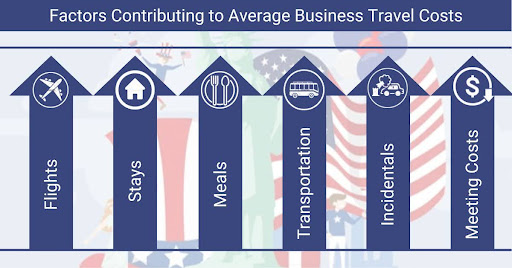
3. Meals: Eating on the Go
Another key factor influencing the average cost of business travel is meals. Business travelers often dine out for breakfast, lunch, and dinner while away, and these expenses can add up quickly.
Meal Allowances
Companies usually have limited meal allowances for business travelers. On average, a daily meal allowance for business trips in the U.S. can range from $74 to $100, depending on the location and the company’s policies.
Client Meals and Business Entertainment
Meals provided for clients or as part of a business event can raise costs significantly. If meals and drinks are included in corporate events, the average business trip cost can be higher.
4. Transportation: Getting Around the City
Transportation costs are another critical aspect of the average business travel costs. This includes getting from the airport to the hotel, traveling to meetings, and general transportation within the city.
Rental Cars and Ride-Sharing
Depending on the location, rental cars may be necessary to get around. A rental car costs about $50 to $100 per day. Alternatively, ride-sharing services like Uber or Lyft are popular for business travelers. The cost averages around $20 to $50 per trip, depending on the distance and demand.
Public Transportation
In major cities with sound public transportation systems, business travelers can use trains, buses, or subways, which are more affordable alternatives to renting cars or ride-sharing services.
5. Incidentals: The Hidden Costs
Beyond the apparent expenses, many incidental costs associated with business travel can increase the average price of a business trip.
Internet and Communication Fees
Accessing Wi-Fi is not free in some hotels or airports, which can result in additional charges. Business travelers who travel abroad may also need mobile data, roaming, or even international calling plans.
Tips and Miscellaneous Expenses
Business travelers often incur tipping charges at hotels, airports, and restaurants. These small expenses can quickly add up throughout a trip.
Business Travel Insurance
Some companies offer or require business travel insurance to protect employees against travel disruptions, cancellations, or medical emergencies. While it’s an important safety net, this can add to the total cost of business travel.
6. Meeting Costs: Conferences and Events
For many business travelers, meetings, conferences, and networking events are a core part of the trip. The costs associated with these activities can significantly contribute to the average cost of business travel.
Conference Fees
The cost of attending conferences or seminars can vary widely. Entry fees for business events or professional networking opportunities can range from a few hundred dollars to thousands of dollars, depending on the industry and the event’s prominence.
Networking and Sponsorship
If the company sponsors any part of the event, these costs must also be factored into the average business trip cost.
Is $1293 the Actual Average Cost of Business Travel?
Now, the big question: is $1,293 the real average cost of business travel? Based on available data, it’s a fairly reasonable estimate for the average U.S. business trip. However, it’s important to understand that this figure can vary significantly based on factors such as the city, the length of the trip, the class of service, and the company’s travel policies.
The average business trip cost of $1,293 is an aggregated figure that combines all the expenses listed above. For example, in larger cities like New York or Los Angeles, the costs are often higher due to more expensive flights, hotels, and meals. In contrast, a business trip to a smaller city or a region with lower costs may bring the overall cost down to $800 or $900.
To calculate the average cost per trip, you can follow these steps:
1. Sum Up All Costs
Add up the total costs associated with all trips, including expenses like transportation, lodging, meals, and other incidental costs. This gives you the total trip cost.
Total Trip Cost= Total Transportation+ Total Lodging+ Total Meals+ Other Costs
2. Determine the Number of Trips
Count how many trips were taken during the period you’re analyzing.
Number of Trips=Total number of trips taken
3. Divide Total Costs by Number of Trips
To calculate the average cost per trip, divide the total trip cost by the number of trips taken.
Average Cost per Trip= Total Trip Cost / Number of Trips
Calculate your savings now!
How to Reduce Business Travel Costs?
Given the significant expenses associated with business travel, many companies are looking for ways to lower the average business travel costs without compromising the effectiveness of their trips.
Here are some strategies to help businesses cut down on travel expenses:
1. Book in Advance
One of the easiest ways to reduce the average cost of business travel is to book flights and accommodations well in advance. Last-minute bookings tend to be more expensive, especially for flights.
2. Utilize Corporate Travel Management Tools
Implementing corporate travel management software or booking tools can help companies find the best deals on flights, hotels, and transportation. These platforms offer more control over spending by allowing managers to set travel policies and monitor expenses.
3. Negotiate Corporate Rates
Negotiating corporate discounts with airlines, hotels, and car rental companies can result in significant savings for frequent travelers. Many businesses work with preferred vendors to secure better rates for their employees.
4. Combine Business and Leisure
Companies may allow employees to combine business and leisure travel, lowering the average business trip cost. For example, an employee may extend a trip for personal reasons and use the company’s flight for business and personal purposes.
5. Embrace Virtual Meetings
While travel is sometimes necessary, assessing whether every trip is essential is crucial. Virtual meetings, video conferences, and webinars can often replace in-person meetings, saving businesses the cost of travel.
Manage Your Average Cost of Business Travel Carefully
The average cost of business travel is indeed high, with an average price tag of $1,293 for a typical American business trip. However, this figure varies based on location, travel policies, and the type of trip. While it’s impossible to eliminate travel costs, businesses can manage and reduce their average business travel costs.
Understanding the breakdown of average business trip cost components and adopting strategies to optimize spending, can help companies keep their travel budgets in check. If you are looking for ways to save on travel budgets, look no further than itilite.
itilite is a new-age travel management company that helps organizations and employees save significantly on travel costs. Our expense management software has state-of-the-art features that let you file expenses and get approvals while on the go.
Additionally, we have a customizable dashboard that enables you to filter out expenses employee-wise or department-wise and understand where the cost leakages are happening.
Book a free demo with itilite to know more.
